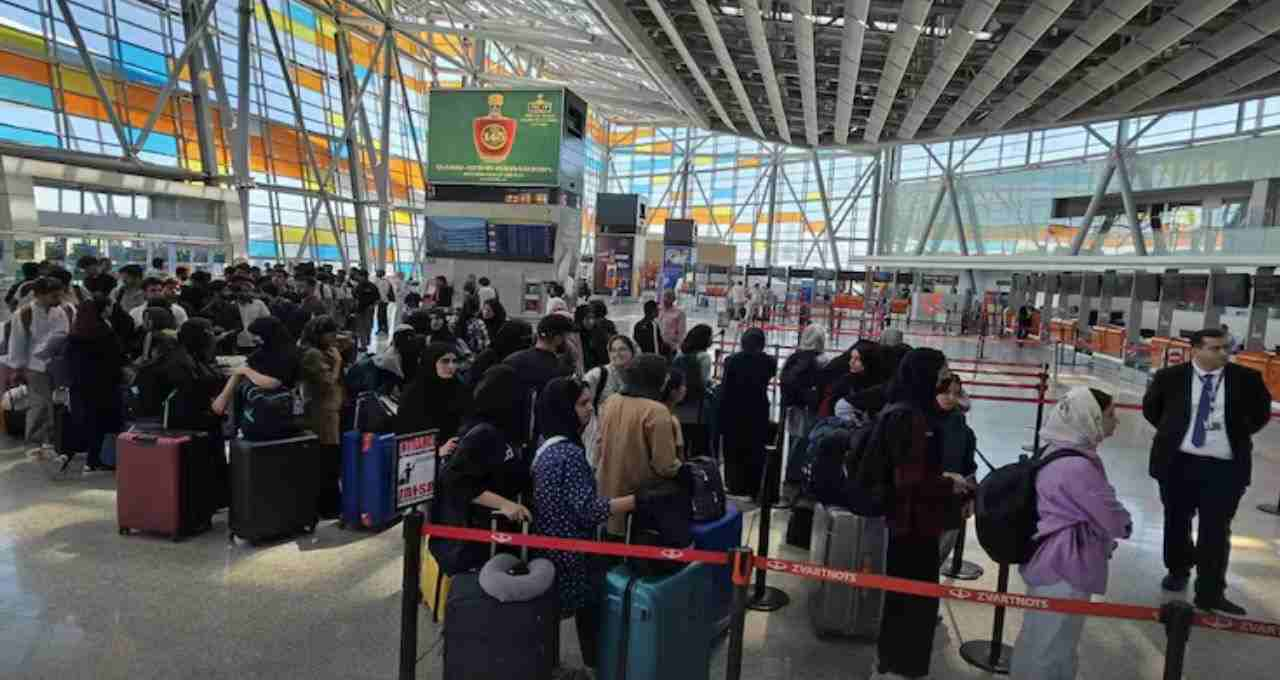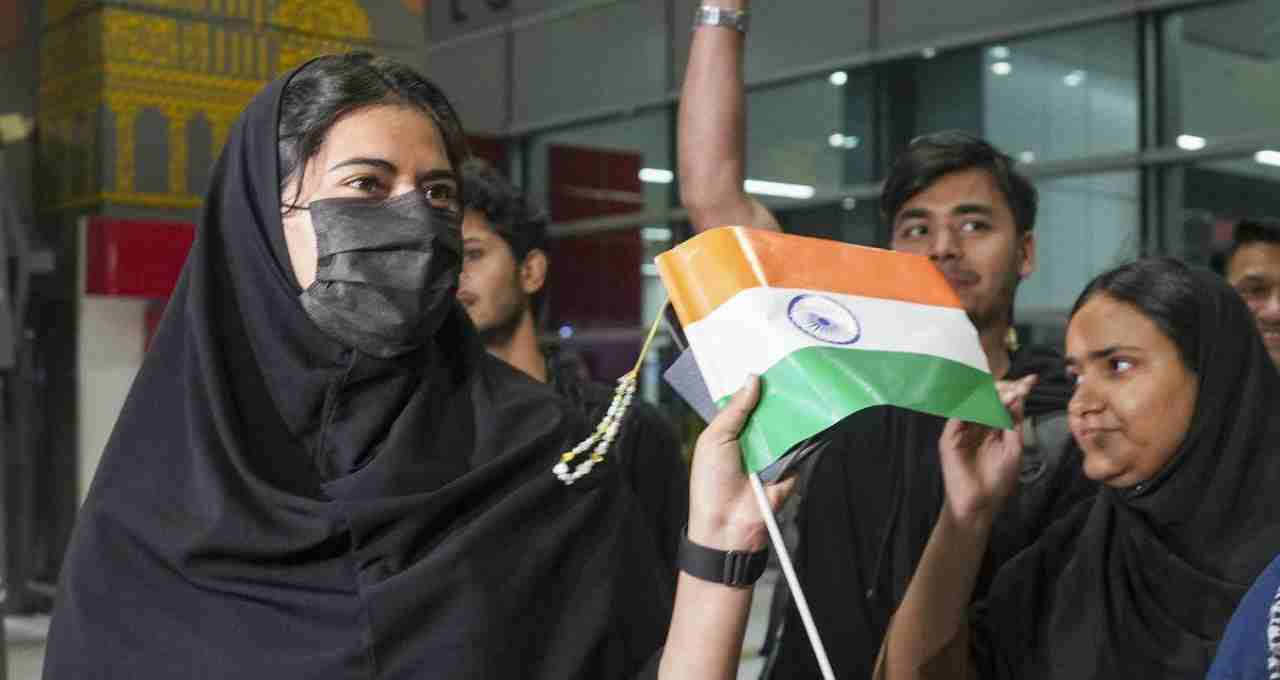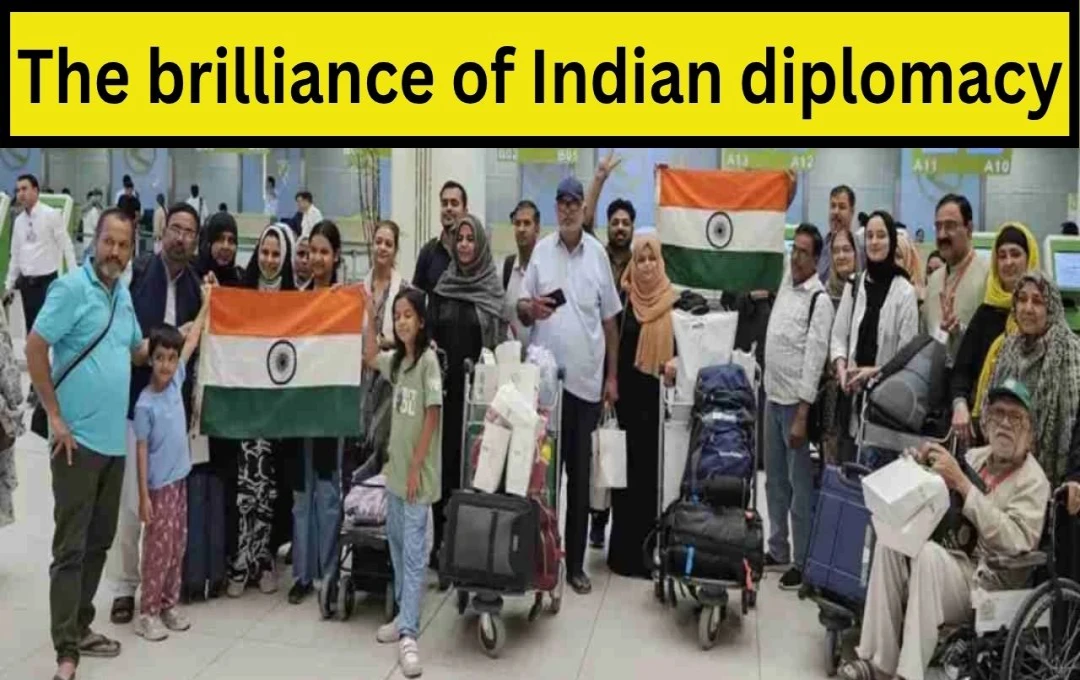The conflict between Iran and Israel is intensifying daily, with ongoing attacks between the two countries creating a tense atmosphere across the West Asian region.
Israel Iran Conflict: When war rages between two nations, and the skies are filled with missiles and drones, a nation's diplomatic prowess is what can safely bring its citizens home. India has once again demonstrated this. Amidst the fierce conflict between Iran and Israel, Iran specifically opened its closed airspace for India to evacuate stranded Indian students.
Indian Students Stranded Amidst Iran-Israel Conflict
For the past few days, a war-like situation has prevailed between Iran and Israel. Missile attacks, drone strikes, and retaliatory actions have left the entire region unsettled. Indian students studying in Iran felt unsafe. Amidst the continuous bombing in war-torn areas, appeals for help were made to the Indian embassy.

India's swift and sensitive response to this crisis highlights the maturity of its foreign policy. Iran specifically opened its closed airspace solely for India to facilitate the safe evacuation of the students. This decision demonstrates that India's international influence is no longer limited to rhetoric; its respect and impact are growing on the ground.
‘Operation Sindhu’ Launched: An Organized Rescue Mission
The Indian government formulated a comprehensive strategy under ‘Operation Sindhu’ to evacuate the students. Coordination between the Ministry of External Affairs, the Indian Air Force, and the Indian mission in Iran ensured the immediate arrangement of flights. This operation was executed with the same precision as ‘Operation Ganga’ during the Ukraine war or ‘Vande Bharat Mission’ during the COVID-19 pandemic.
The first flight carrying students from Mashhad, Iran, is expected to land at Delhi airport around 11 pm tonight. This flight carries approximately 250 students. Furthermore, two more flights on Saturday will bring back around 750 more students, ensuring the safe return of a total of 1000 students.

Cooperation from Iranian Officials
Senior Iranian officials fully cooperated in this humanitarian effort. Constant communication was maintained between the Indian embassy in Tehran and the Iranian Ministry of External Affairs. Iran also clarified that chartered flights have been specifically arranged for any Indian citizens wishing to leave the country. The Iranian embassy in Delhi confirmed this, stating that contact between the two countries strengthened further after reports of some students being injured. Responding to the Indian government's appeal, Iran took emergency steps, opening its airspace and prioritizing the flights.
This entire sequence of events highlights the direction of India's foreign policy, where the 'citizen first' sentiment takes precedence. India not only rescued its citizens from the crisis but also further solidified its image as a reliable and sensitive nation in international diplomacy.










